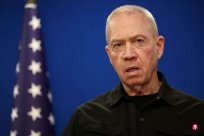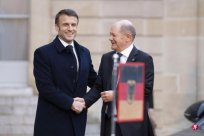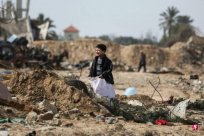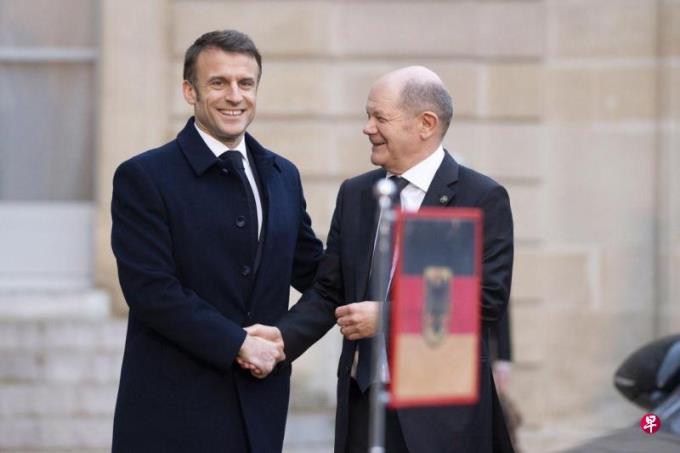
(Brussels Composite Electric) Members of many North Atlantic Treaty organizations such as Germany and the United States stated that they would not send ground troops to Ukraine.French Foreign Minister clarified the statement of President Macron's dispatched army, and France considered the task of sending troops to perform minesweeper, weapon production and network defense.
More than 20 national leaders gathered in Paris on Monday (February 26) to discuss to strengthen assistance to Ukraine and resist Russia's aggression.French President Macron said at a press conference after the meeting that in order to achieve the goal of Europe to defeat Russia, it should not exclude the dispatch of ground forces to Ukraine.
The Russian Klimlin spokesman Peskov replied to a reporter's question that if the North Atlantic Convention Organization (NATO) sent troops in Ukraine, the conflict between Russia and NATO would inevitably.He pointed out: "In this case, what we discuss is not the possibility, but the inevitability of (direct conflict)."
U.S. State Department spokesman Miller answered when the U.S. military may be in Ukraine's training mission: "We will not send troops to Ukraine. (Bayeng) President's attitude is very clear."
The National Security Council spokesman Watson issued a statement saying that the president has stated that the United States will not send troops to Ukraine to fight."
Another spokesman of the committee, Kobe, told reporters that the U.S. military in Ukraine was a military personnel who sent the US Embassy in the United States to "carry out important work" in the recording of the weapon to record Ukraine.
Cerbin denies that the U.S. military will participate in thunder, weapon production or network operations.Earlier, French Foreign Minister Surne explained to parliament that countries must consider taking new actions to support Ukraine. "I conceived thunder in Ukraine, conducting network defense and weapons production."
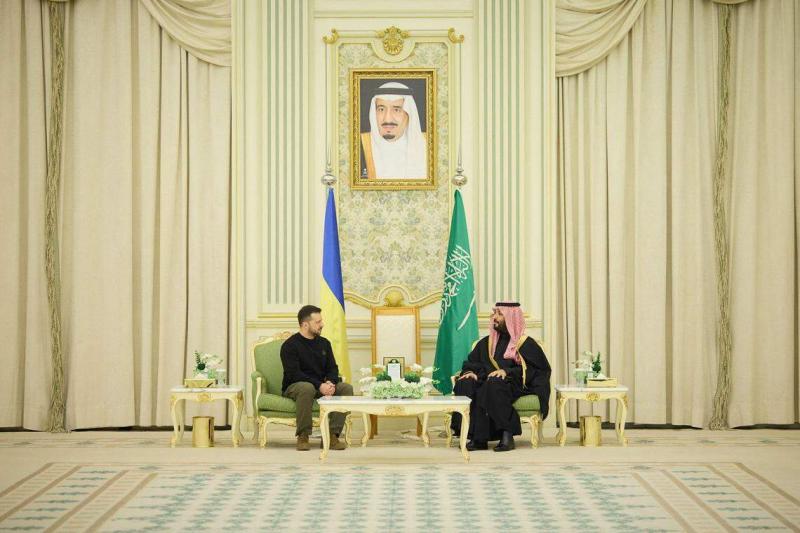
Germany, the United Kingdom, Spain, Poland, Italy, the Czech Republic, Hungary and Slovakia stated on the same day that there was no plan to send troops to Ukraine.Germany's Prime Minister Tsold emphasized: "We have consensus from the beginning ... Europe or NATO countries will not send ground troops or soldiers to Ukraine."
The German Defense Minister Pestorius, who visited Vienna, told reporters: "The ground forces are not one of the options."
Analysis: Macron's remarks increase the differences between the West's Western Aid of the Ukraine
Reuters quoted a Western official that Macron "made some NATO members feel uneasy and confused."Analysts pointed out that Macron's remarks not only increased the differences between Western countries' aid of Ukraine, but also exacerbated the tension between France and Germany.In recent weeks, German officials have stated that France has not provided sufficient military assistance to Ukraine.
Another EU diplomat believes that Macron's remarks "make the allies disagree and damage the reputation."
At the same time, Ukraine intelligence agencies warn on Tuesday that Russia will upgrade the "mixed war" launched by Ukraine this spring this spring, hoping to use it to intensify Ukraine's internal conflicts and weaken the international community's support for Kiev.The Intelligence Committee of the Presidential Palace of Ukraine states: "In the next few weeks, the enemy will do its best to spread the destructiveness of the world's security and intensify the conflict between Ukraine and the Alliance."

